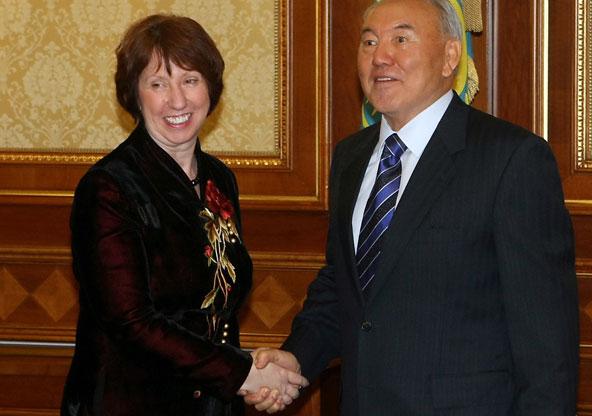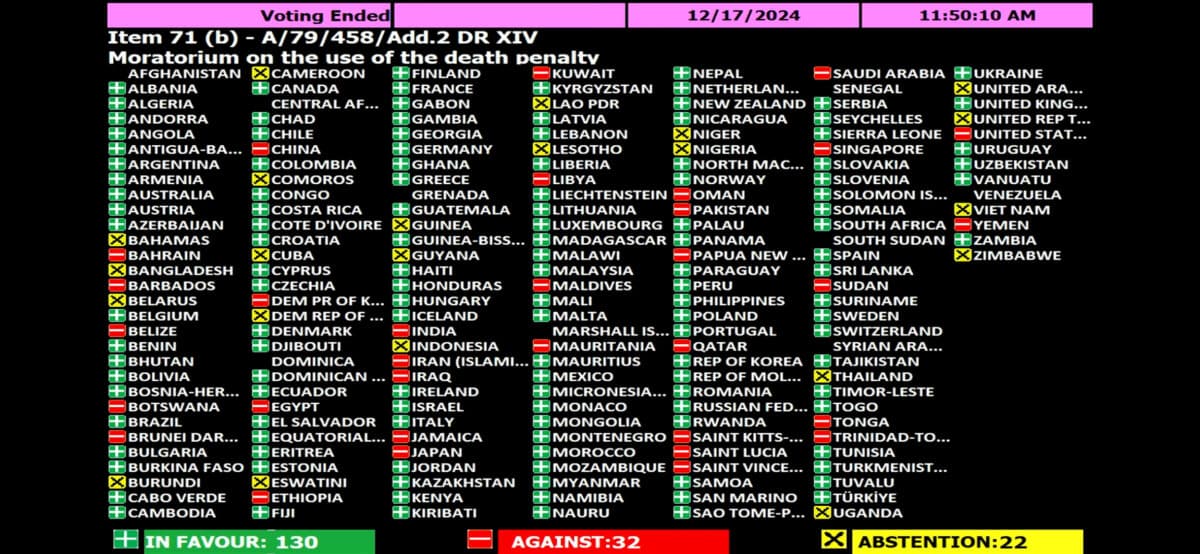
Kazakh criminal law reform could add capital crimes
Asia
How broad will the death penalty be after Kazakhstan updates its criminal legislation in the coming months? “We cannot tell, it’s changing all the time. The first draft had 25 articles referencing the death penalty, then it was 18, now 20,” Saule Mektepbayeva, regional director for Penal Reform International (PRI) Central Asia.
There are currently two crimes punishable by death under Kazakhstan’s constitution: acts of terrorism which result in death and grave crimes committed during times of war. However, legislators have broadly interpreted those two offences into 18 different articles of the criminal code.
The current review of the criminal code aims to further broaden the scope of application of the death penalty, in direct contravention to stated Kazakhstan policy of phased abolition of the death penalty.
World Coalition member organisation PRI has been busy preparing a debate on this issue at the Kazakh parliament on 19 February. Together with diplomats from the European Union and the UK, Saule Mektepbayeva will hold discussions with lawmakers, justice ministry officials and members of the general prosecutor’s office tasked with drafting the new criminal code. “Constant work is needed to keep the number of capital crimes low or abolish the death penalty,” she said.
Moratorium
President Nursultan Nazarbayev (photo, right, with EU foreign policy chief Catherine Ashton in Astana in November 2012) declared a moratorium on executions in 2003 and the country voted in favour of the UN General Assembly’s resolution for a moratorium on the use of the death penalty in December 2012.
According to a report prepared by local experts for PRI, the authorities’ stated policy since 2002 has been one of “gradual narrowing of the scope of the death penalty”. A previous reform of the criminal code in 1997 had “reduced by almost half” the number of capital crimes. Kazakhstan modified its constitution in 2007 to restrict the death penalty to the most serious crimes as neighbouring nations Kyrgyzstan and Uzbekistan abolished capital punishment, and there was hope that Astana would soon follow the regional trend.
“In the current Kazakh system, punishments are very harsh and criminal legislation reform was expected to rein them in,” said Anne Souléliac, who heads the human rights section at the Paris Bar Association. This other World Coalition member travelled to Kazakhstan in late January and she reported prosecutors had been asked to review the criminal code in the context of a wider backlash against human rights there: “Shut-downs of opposition media outlets are spreading at the national and local levels, and the independence of attorneys is under threat from a plan to create a State-controlled bar association,” she said.
Minerals and Airbus aircraft
PRI hopes to bring parliamentarians on board early, before they begin examining the draft legislation in the autumn, especially as they will be under pressure from public opinion that is not expected to favour abolition.
In follow-up to it is parliamentary debate on 19 February, PRI aims to invite two progressive Kazakh parliamentarians to take part in a study visit to London and Brussels in May 2013, with the aim of sharing experiences and lessons-learned with their European counterparts. They will discuss how to deal with the abolitionist process through legal and policy reform, and how to answer difficult questions posed by the public.
For now, local activists have enlisted European diplomats to speak to parliamentarians, and they may build on Kazakhstan’s support for the UN’s moratorium resolution as well as well its welcome of international co-operation projects in favour of abolition in recent years to remind the authorities of their policy to phase out capital punishment.
But Anne Souléliac would like to see Kazakhstan’s European partners do more to further human rights there, regardless of their growing trade links with the country. “Kazakhstan has had a moratorium for years and it would be a major step backwards to increase the number of capital crimes. France and the EU must play their role and stick to their commitments,” she said.
French president François Hollande and his foreign minister Laurent Fabius, who made opposition to capital punishment a priority of his ministry, are expected to visit Astana soon. Kazakhstan is rich in mineral resources and president Nazarbayev hosted a meeting with the CEO of Airbus Military, one of many Western companies interested in business in the country, on 5 February, and stated his intention to “deepen the mutually beneficial cooperation” with the European aircraft manufacturer.
Photo: European External Action Service – EEAS







